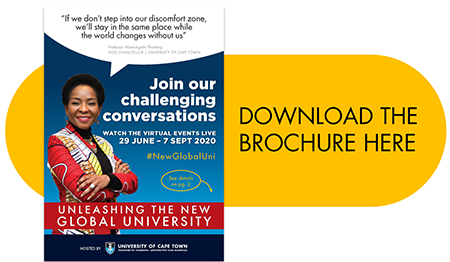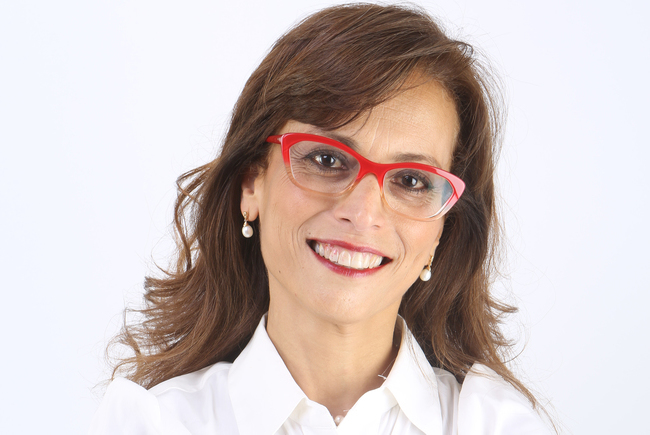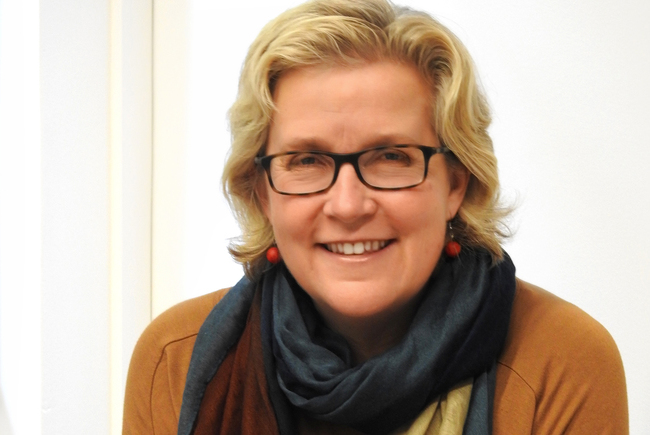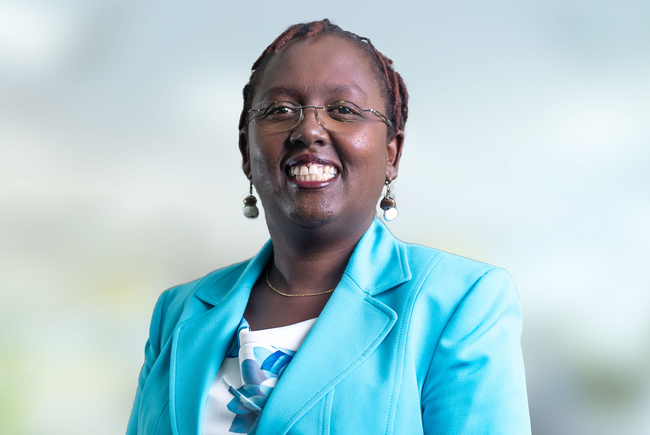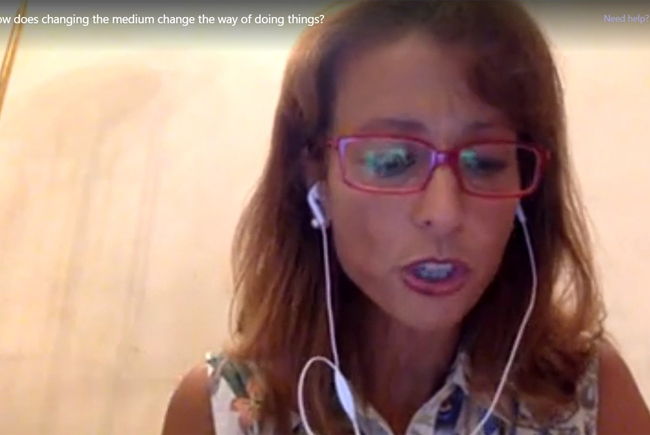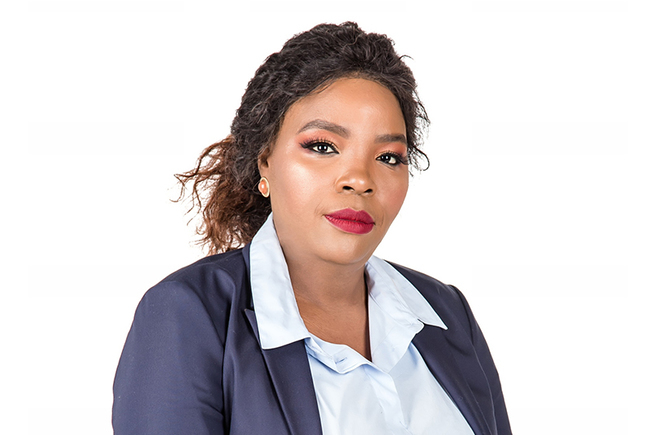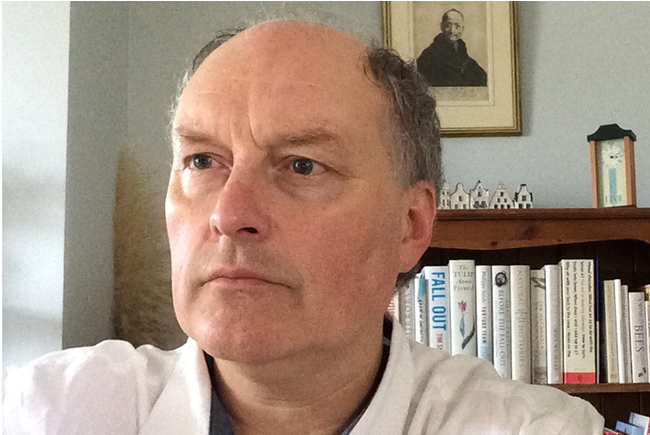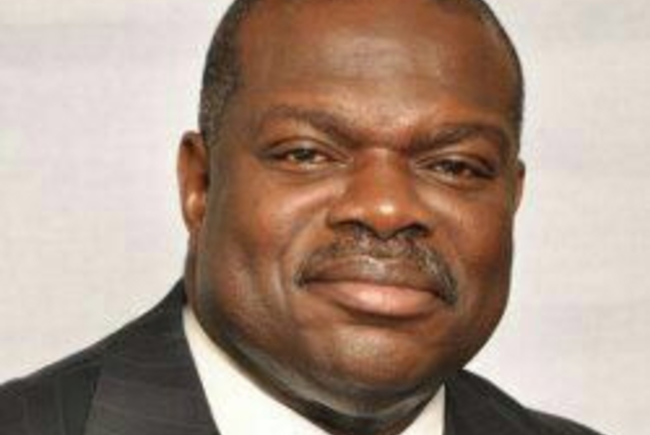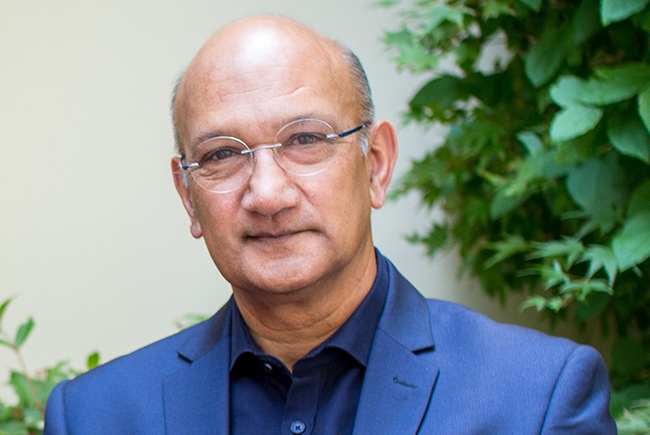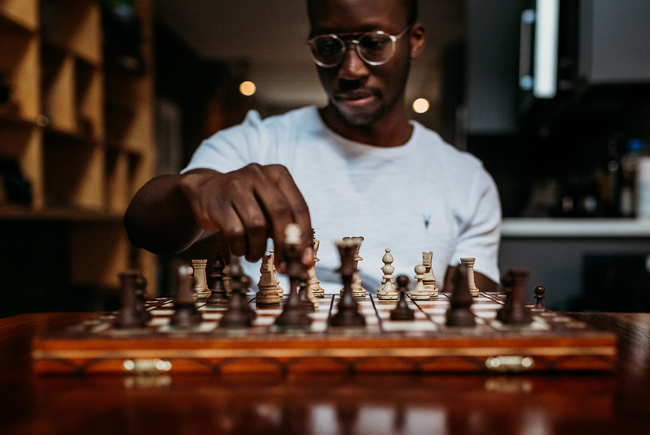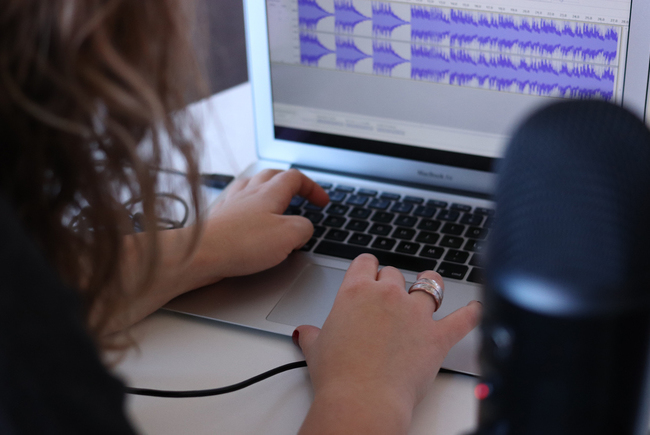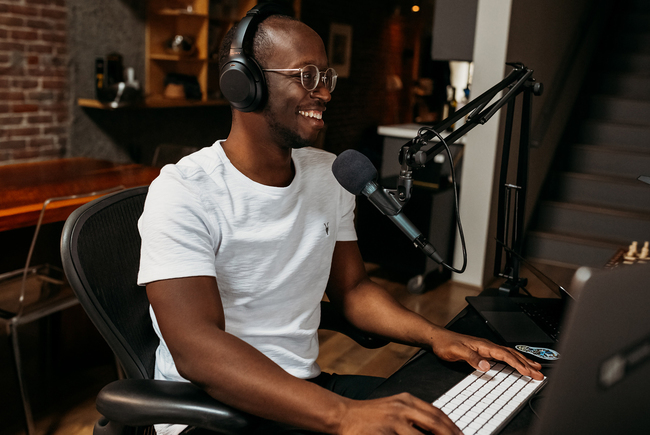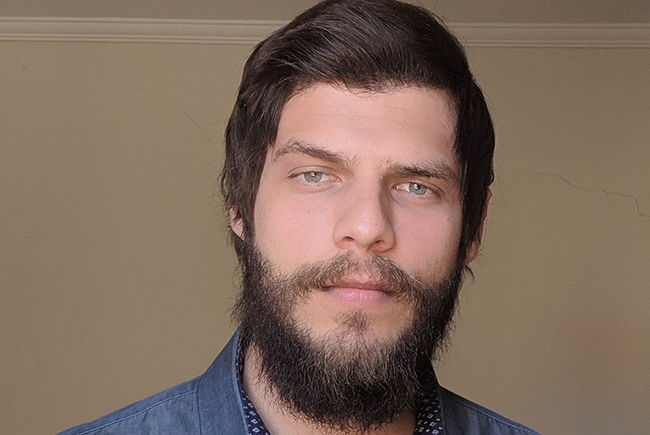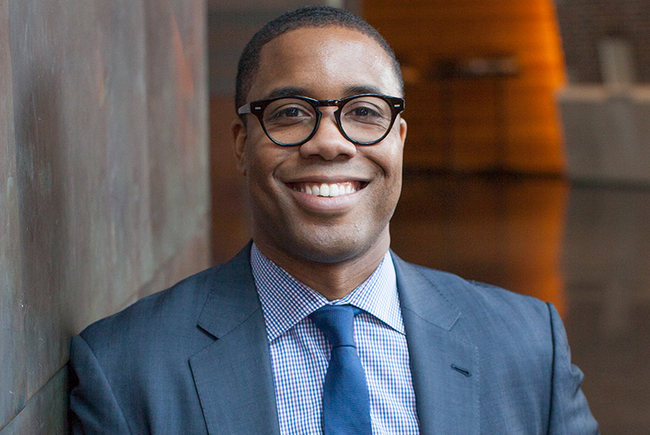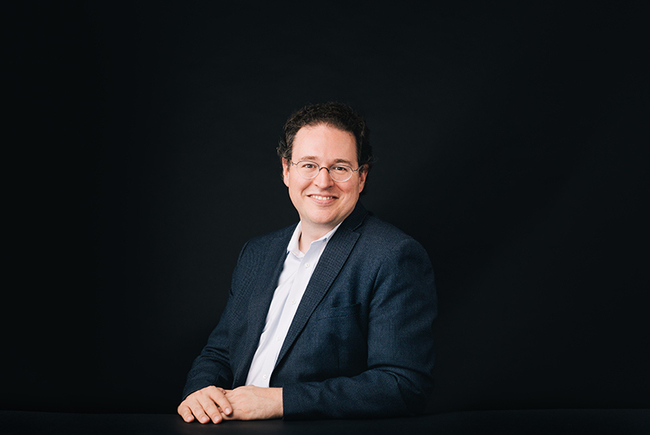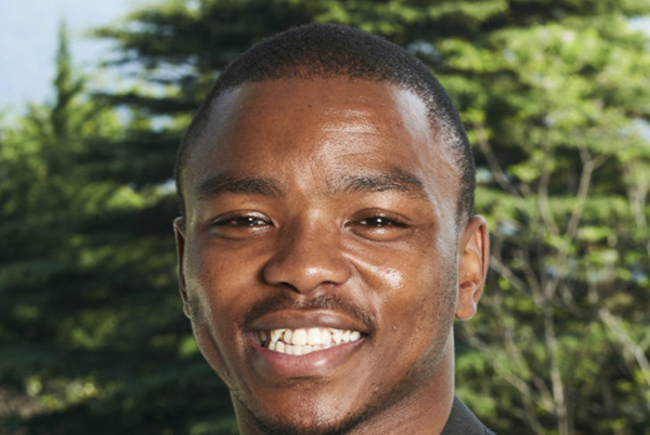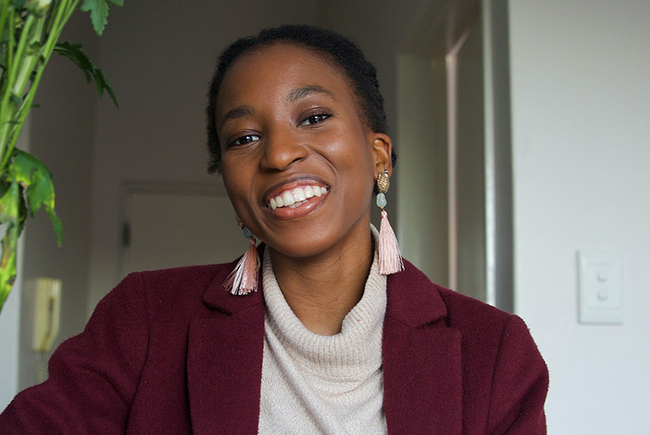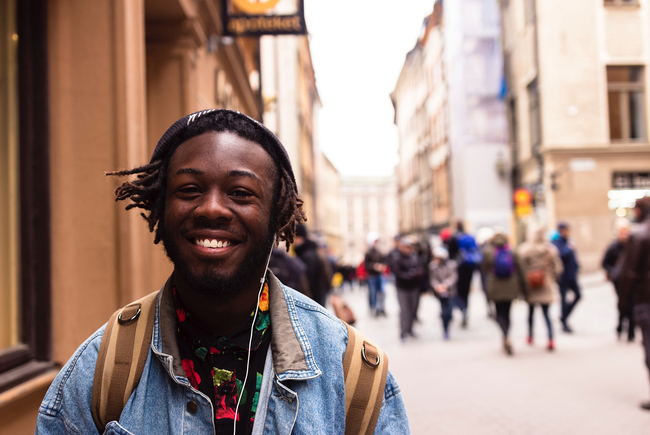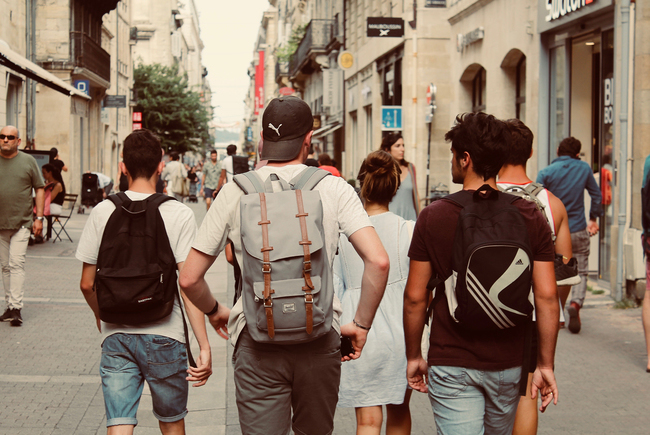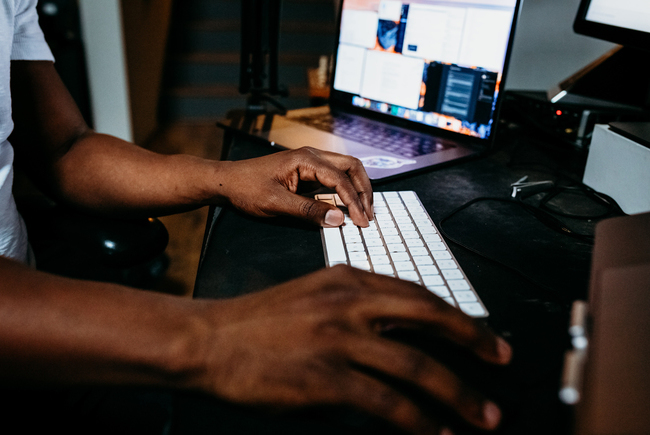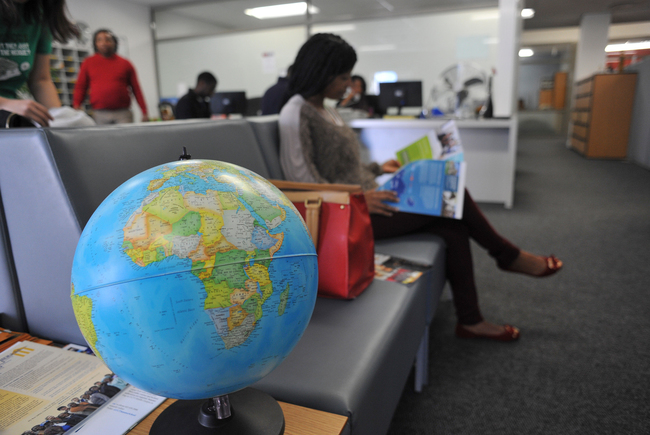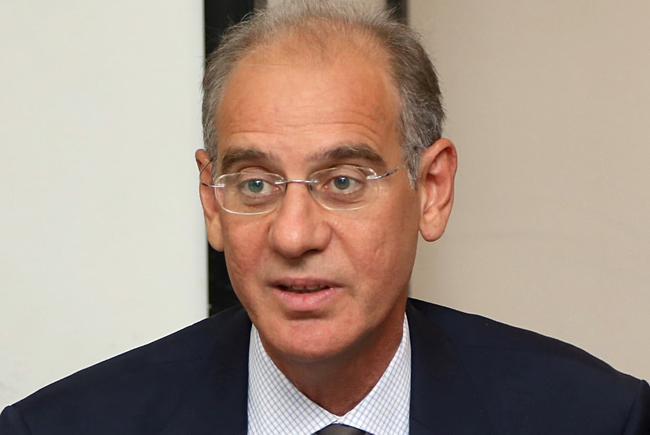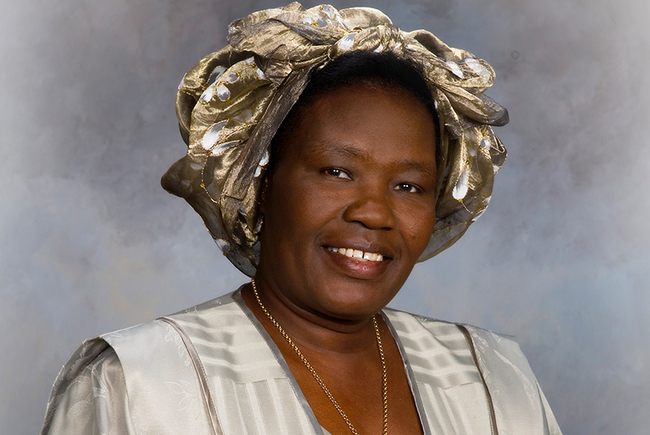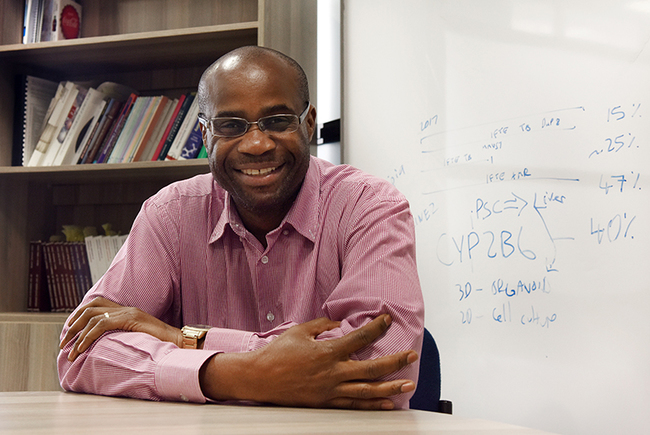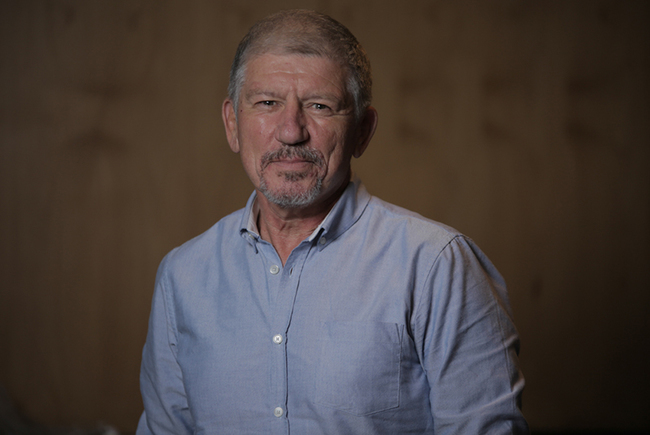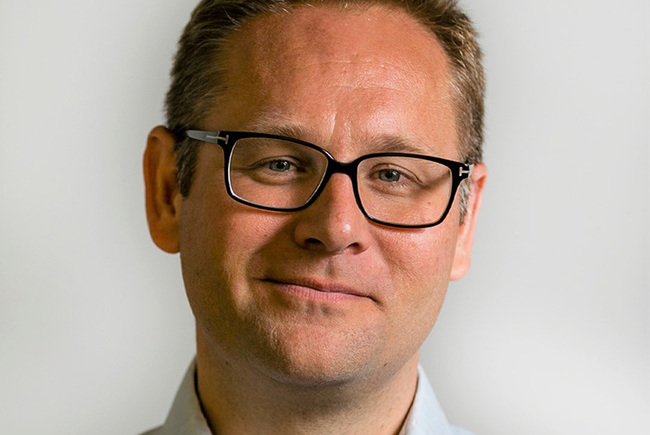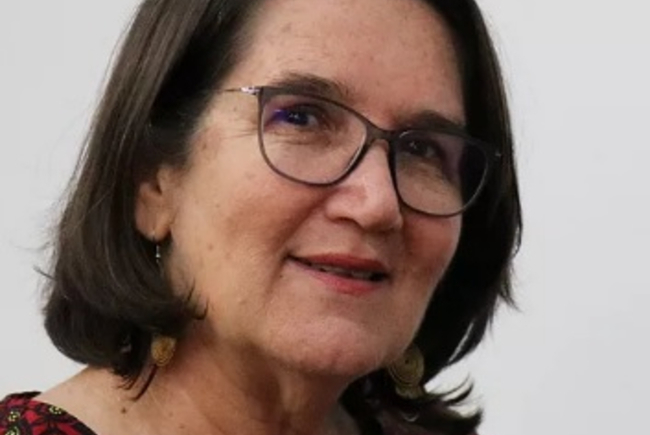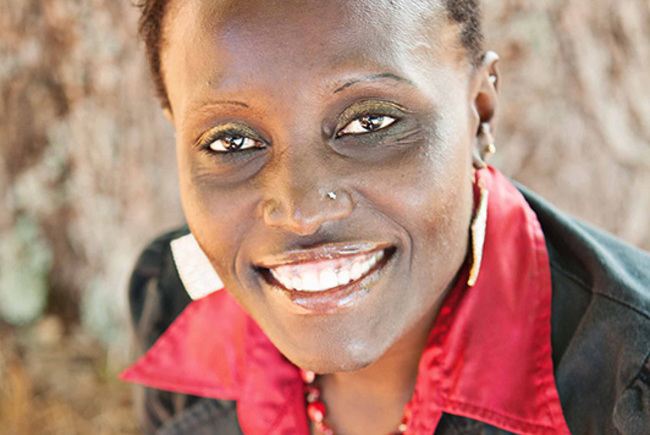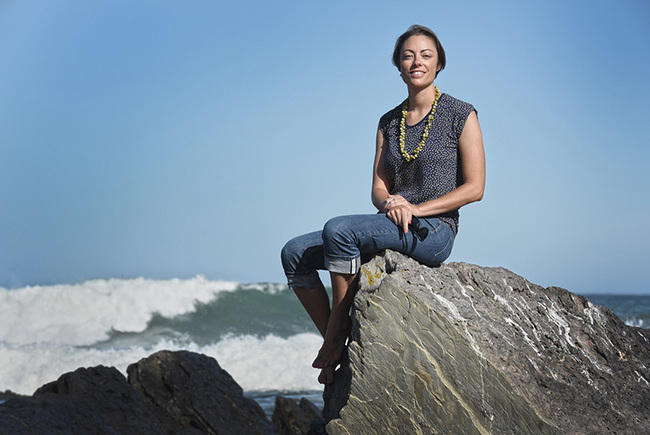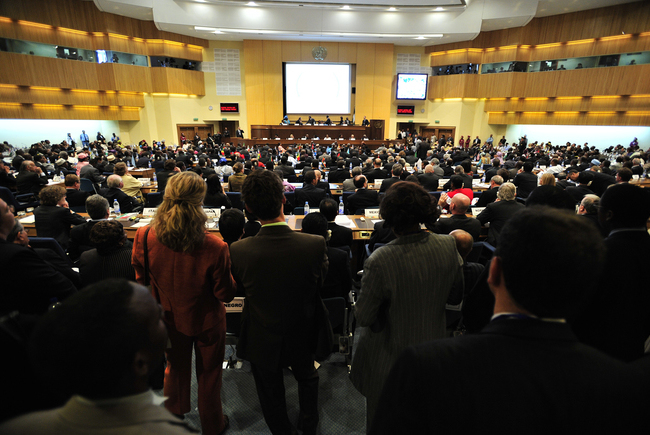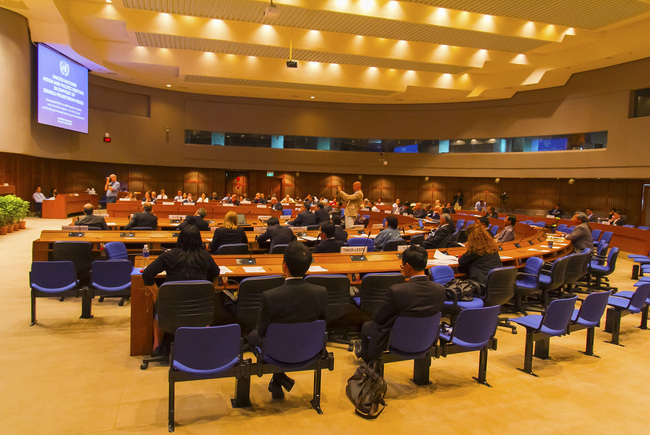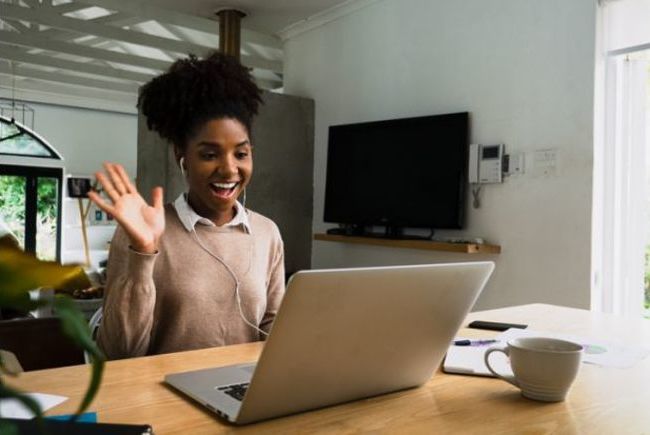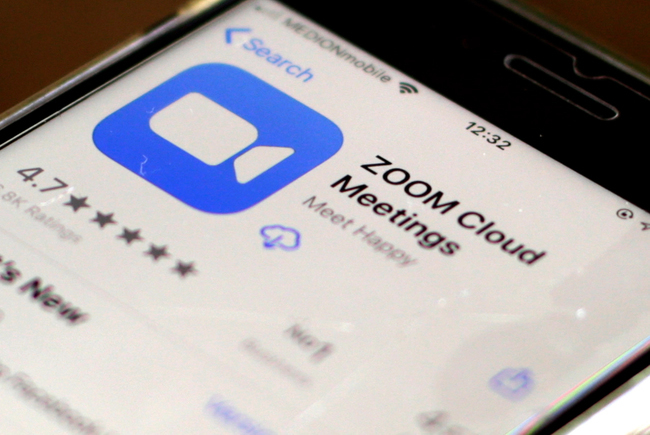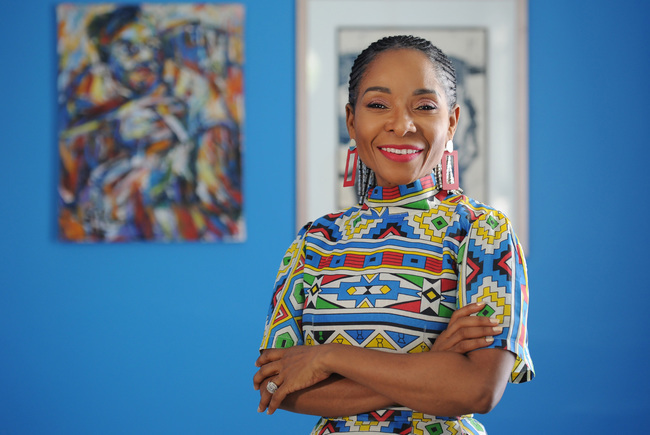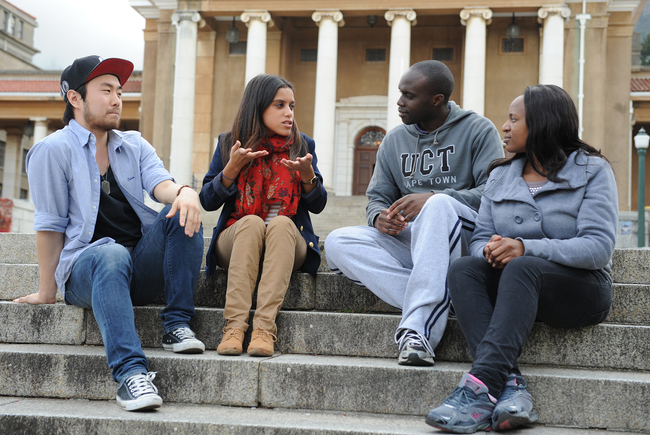Postgraduate studies – Rethinking the international experience
04 September 2020 | Story Stephen Coan. Photo Simon Abrams, Unsplash. Read time 9 min.
The suspension of international travel to attend conferences; the inability to take up postgraduate scholarships and posts; financial losses due to the fall-off in tuition fees from foreign students … The landscape of the world of tertiary education has been completely, perhaps irrevocably, altered by the coronavirus pandemic. Privileged status and the fault lines between developing and developed countries have been starkly exposed.
In June, into this atmosphere of fear and, incredibly, hope, the University of Cape Town (UCT) in South Africa launched a series of webinars under the banner “Unleashing the New Global University”. Last week, the fourth of these “challenging conversations” saw academics from Ghana, South Africa and the United Kingdom reflect on the question: “Postgraduate researchers: can we rethink the international experience?”
Hosting the event, UCT Vice-Chancellor Mamokgethi Phakeng outlined the benefits of mobility for postgraduates: exposure to facilities they may not enjoy in their home country, as well as social and cultural contact. “It’s not just about academic expertise but how you grow as a person,” she said.
“Engaging with top universities and leaders in your field” not only brings research benefits but benefits individuals. Is all that replaceable online? “Is international travel critical to this exposure, given COVID-19 and the bans on international travel?”
Climate change is also part of the equation. “We know the harm flying does to the environment,” Phakeng said. “There is also the problem of who gets to travel. Such travel is a luxury for the less privileged.”
Equity and access
In a time of global lockdown, the pandemic has highlighted issues of equity and access. “COVID-19 has given us the opportunity to confront these issues and how we set about doing things differently. Corona creates the push to do this now, not later,” Phakeng said.
“It’s not just about academic expertise but how you grow as a person.”
Optimal use of online technology can significantly enhance postgraduate training, according to Ernest Aryeetey, professor of economics and secretary-general of the Ghana-based African Research Universities Alliance (ARUA), a network of tertiary institutions bent on improving academic research and graduate training on the continent by pooling technical and intellectual capital.
“Collaboration between African universities has already gone a long way,” said Aryeetey. “The use of online technology can only improve an already strong resource.” But he cautioned that “face-to-face interaction” shouldn’t be jettisoned entirely and there was a “need to increase mobility within Africa” to facilitate student movement between countries such as Ghana, Kenya, Nigeria, South Africa, Tanzania and elsewhere.
Aryeetey said he was not dismissing African contact with the Global North; there was need for connections to be made all over the world, but the pandemic had shifted focus to the Global South and now was the time to improve facilities and infrastructure in Africa.
While the coronavirus may have highlighted the inequalities of societies, it has also been a catalyst for greater social cohesion. “We have seen people step up,” said Daya Reddy, president of the International Science Council and holder of the DST/NRF SARChI (South African Research Chairs Initiative) Chair in Computational Mechanics at UCT. “We need to look at how online resources can enhance social cohesion and address inequalities.”
Entering postgraduate studies brings with it the “thrill of embarking on a passion” and pushing the boundaries of research, said Reddy, “but it is also stressful and lonely; there are many hurdles and challenges.” Not least financial.
Need for networks
Reddy emphasised the necessity for support, the importance of and ability to call on a network of peers. “That is key to resilience and success. To reinforce social cohesion and support among peer groups, among students and faculty members.”
Reddy said it was a truism that “postgraduates learn more from each other than their professors” and, consequently, creating online networks was especially important in the Global South – “We are isolated and in small numbers: and it’s difficult to travel compared to the Global North, especially now with the constraints of the pandemic.”
“We need to ask a fundamental question: what is a PhD for?” Do online meetings boost equity and democracy?”
The pandemic had forced people to become innovative, said Reddy, and that innovation has embraced how we use communications and how we work. “Now you can attend sessions and seminars wherever you are sitting in the world. It’s an ideal opportunity for those who feel isolated to create virtual peer groups – not necessarily based on disciplines – to create social cohesion.”
Internationalisation was already a feature of everyday life given the movement of people around the world, said Hangwelani Hope Magidimisha-Chipungu, DST/NRF/SACN SARChI Chair in Inclusive Cities at the University of KwaZulu-Natal. “The flow of international migrants worldwide amounts to 130 people moving every minute,” she said.
“In academia, that means faculties are driven by teaching that taps into experiences from home countries and engaging with students from different environments, cultures and languages.”
“The lived experience of travel and contact with the environment and people – we aren’t going to be able to replace that with anything else,” said Magadimisha-Chipungu. “It’s needed, but it is expensive. Can’t we make this travel more equitable?”
A fresh approach – What is a PhD for?
The pandemic is a time of distress and crisis, but also a time of hope and potential – a seismic slip calling for a fresh approach, said Terry McMaster, associate professor in the School of Physics and director of the Graduate School at the University of Bristol in the United Kingdom.
“We need to ask a fundamental question: what is a PhD for?” Do online meetings boost equity and democracy? “How do we train PhD students and early career researchers? … Are they produced just to populate academia or to play a positive role in society?”
“What qualities do we really value in a PhD student?” he asked. “There are many, but top of the list has to be leadership, mature leadership. Someone exhibiting the confidence in embracing the online environment; reaching out, making the first move to contact others and taking responsibility.”
“What qualities do we really value in a PhD student? There are many, but top of the list has to be leadership, mature leadership.”
The idea that a move to online technologies can enhance graduate training is to miss the point, said McMaster. “It’s not so much about enhancement but facing the fact it will be different – the move to online versus travel is fundamentally different; we have to live with that,” he said. “You can’t just bolt on equity – it needs to be built into the programme; a strategy that will attract the best students who can spot the window dressing for what it is.”
Such a strategy can make the postgraduate experience richer: “We must prepare for a world in which we will not be able to travel, as well as preparing our students for one in which we can.”
Reddy, when asked if a global online network of peers and mentors was a reasonable substitute for travel, responded: “It’s not a simple ‘yes’ or ‘no’. Face-to-face communication as a result of travel is important. Can we substitute it completely? I think not.”
But the present situation will allow us to examine traditional ways of working and re-examine reasons for travel and attending conferences. “Down the track we will find out what we have learnt – and there are certainly many advantages of using online technology we can point to.”
”We have learnt a great deal in a short time and found different ways of doing things,” Reddy said, adding that even in the past it was possible to work with a like-minded colleague on another continent without ever meeting physically to produce books and papers. “Now that is even more possible, given the times and the digital revolution.”
Register at www.news.uct.ac.za/features/the-new-global-university for the next UCT webinar on 7 September, Conversation #5: “How does changing the medium change the way of doing things?”
 This work is licensed under a Creative Commons Attribution-NoDerivatives 4.0 International License.
This work is licensed under a Creative Commons Attribution-NoDerivatives 4.0 International License.
Please view the republishing articles page for more information.
Unleashing the new global university
A series of challenging conversations
The pandemic has disrupted higher education international activities and the income on which universities increasingly depend. But the previous model was already problematic, contributing to global warming and benefitting rich universities more than poor. Unleashing the new global university is a series of virtual events in which we invite innovative, international and local speakers to have challenging conversations that help us rethink global collaborations for a sustainable and equitable planet.
Conversation #5: How does changing the medium change the way of doing things?
Monday, 7 September 2020, 17:30–18:30 (CAT/SAST)
Covid-19 has radically changed the ways that universities do everything: research, teaching, social responsiveness and internationalisation. International students have gone home or are in lockdown unable to physically experience the countries they are visiting; they are completing courses through remote learning. Conferences have gone online. Researchers are collaborating on virtual platforms.
Ironically, the lockdown has seen an opening up of connections, as distance ceases to be a barrier. While the opportunity to tangibly experience the location has gone, there have been many positive aspects to these changes, which universities have embraced, and are looking to take into the future.
The great hope has been that we can use the new technologies on which we are now relying during the pandemic to be more creative in the ways we shape international experiences and collaborations, and to do so in ways that lessen the negative characteristics of the old model.
How will changing the medium challenge the nature of global relationships? What have the opportunities been to decentre and disturb existing internationalised power relations?
This session will creatively address how more equal relationships might be formed; how digitally mediated forms of global engagement might enable what Nancy Fraser calls “participatory parity”.
Host
- Mamokgethi Phakeng, vice-chancellor, University of Cape Town, South Africa
Moderator
- Laura Czerniewicz, professor, director: Centre for Innovation in Learning and Teaching (CILT), University of Cape Town, South Africa
Participants
Videos
News
Conversation #4: Postgraduate researchers: can we rethink the international experience?
Monday, 24 August 2020, 17:30–18:30 (CAT/SAST)
What are the markers of a truly enriching postgraduate experience? From a global north perspective, being able to travel abroad to access resources and expertise from elsewhere in the globe, create new networks and build a CV have been almost taken for granted and a central tenet of the postgraduate experience. Postgraduates in the global south have had far fewer opportunities for mobility. The COVID-19 pandemic has ended international travel for all postgraduates, creating an opportunity to stop and think: can we make the postgraduate international experience more equitable by going virtual? In this challenging conversation, we explore what will be lost and gained if postgraduates gain an international experience as deskchair travellers.
Host
- Mamokgethi Phakeng, vice-chancellor, University of Cape Town
Moderator
- Sue Harrison, deputy vice-chancellor for research and internationalisation, University of Cape Town
Participants
Videos
News
Conversation #3: Undergraduate student mobility: are virtual experiences a realistic substitute?
Monday, 27 July 2020, 17:30–18:30 (CAT/SAST)
The number of undergraduate students travelling for part or all of their degrees has increased dramatically in the last few years. Some of these students are on exchange or scholarships; the majority pay large fees, which increasingly form a substantive portion of the income of their destination institutions. The pandemic brought most of this mobility to a halt. These international experiences can be rich, even life-changing: both the exposure to new ways of thinking, but also to new ways of living. But they come at a cost – both to the environment, and often to the student, meaning only the well-off can afford them. Using what we are learning from the global shift to emergency online teaching and learning, can we envisage a more sustainable, equitable model? What are the most valuable aspects of the international experience for students, and for which of those can we find creative virtual alternatives?
Host
- Mamokgethi Phakeng, vice-chancellor, University of Cape Town
Moderator
- Sue Harrison, deputy vice-chancellor for research and internationalisation, University of Cape Town, South Africa
Participants
Videos
News
Conversation #2: International collaborations: how can we shift the power towards Africa?
Monday, 13 July 2020, 17:30–18:30 (CAT/SAST)
The second event focused on whether or not the disruption to the current higher education model can bring about a shift in the centre of gravity in international collaborations and help us to reimagine a different approach that empowers African institutions to take the lead in collaborative projects and partnerships both within and outside the continent.
Host
- Mamokgethi Phakeng, vice-chancellor, University of Cape Town
Moderator
- Salome Maswime, professor in global surgery, University of Cape Town
Participants
Videos
News
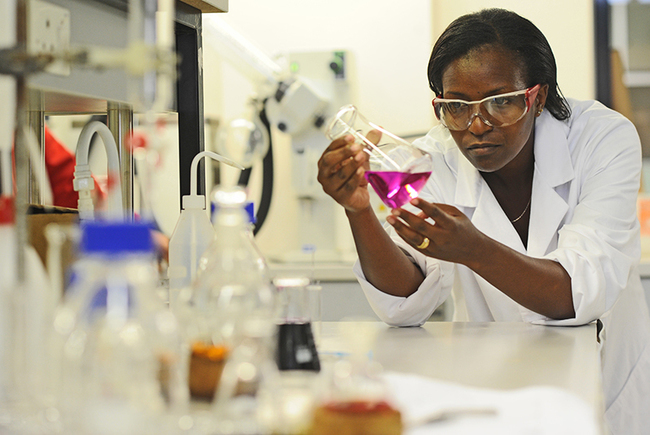
17 Jul 2020 Republished
Conversation #1: Academic conferences: how virtual can we go?
Monday, 29 June 2020, 17:30–18:30 (CAT/SAST)
Our first event focused on the future of conferences and international meetings. Most of us will by now have attended virtual versions of large international gatherings that were intended to be physical get-togethers. Should we consider this to be the future of conferences? What are the gains and losses of online conferences, workshops and consortium meetings? How can conferences be reinvented?
Host
- Mamokgethi Phakeng, vice-chancellor, University of Cape Town
Moderator
- Kelly Chibale, professor in organic chemistry, director of H3D, University of Cape Town
Participants
Videos
News







